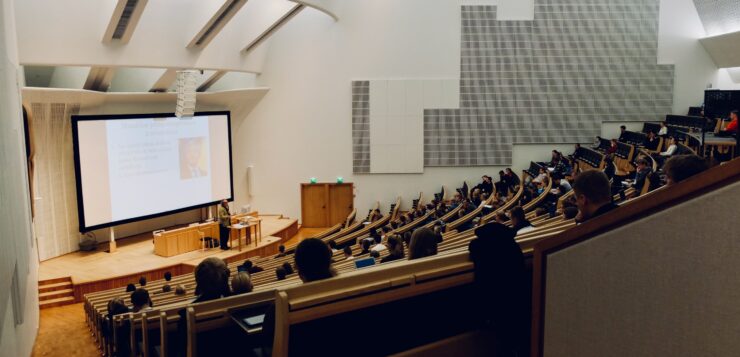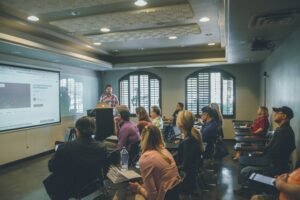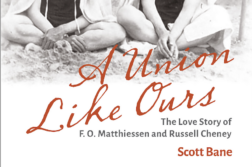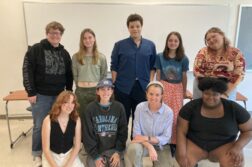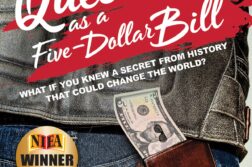The semester before the pandemic interrupted classes, a LGBTQ student informed me that he wanted to write his research paper arguing that media representation of gay people, although improving, adversely affects the self-image of queer kids. I approved the topic, and I told him that the history and background of gay discrimination would be incomplete without mentioning Stonewall. He asked, “what’s Stonewall?” and I realized that was a teaching moment.
I decided that I would teach a class on Stonewall, so I visited the chair of the English Department at Southern Illinois University at Edwardsville. After some discussion, I decided that a non-credit class was more in line with what I wanted to accomplish. The department agreed, and a Stonewall Uprising class was listed for the next semester. Unfortunately, the pandemic did not allow for face-to-face classes, and the class was re-listed for the next semester, but many students were still reluctant to attend face to face classes, and with a busy class schedule next semester— I was forced to turn it down again.
Well into the next semester, I received an email from a faculty advisor at a local community college asking if I would be willing to speak to their LGBTQ student organization about Stonewall, and said “yes”.
When I arrived in the college’s conference room, there were ten to fifteen eighteen-year-old students in attendance. To start the talk on a positive note, I talked about the great gay love stories of the ancient world: Achilles and Patroclus; Sappho and the “married woman;” and Hadrian and Antinous. I read a poem by Sappho. I discussed other cultures and their acceptance of gay relationships. I then turned to the discriminatory ‘50s and ‘60s, and discussed the play-by-play account of June 28, 1969 in New York City. I had rapt attention.
One of the students asked, “Why did it take so long for gay people to resist?” I spoke from my own personal experiences as a young gay male living in rural Louisiana. Gay people were made to feel that discrimination was justified. We were branded as perverse outcasts by our families, churches, and the government. We were forced into the closet, but most of us went there willingly because we were taught to be ashamed of our orientation. The students also asked me for some gay literature suggestions, to which I recommended American Studies by Mark Merlis, At Swim, Two Boy by Jamie O’Neill, and the classic Rubyfruit Jungle by Rita Mae Brown. They thanked me profusely; Though I felt a bit embarrassed by their gratitude. The next day I received an email from one of the students, who informed me that the rest of the group took up a collection, and sent me a $50 Amazon gift certificate.
Even though I didn’t teach the class at SIU, and I doubt I would have gotten more than fifteen people in such a class, even if it had been held— my hard work paid off . A couple of weeks after the lecture ended, I received an email asking me if I would be willing to speak on Stonewall for the Lifelong Learning Series, a speaker series given by university professors and attended by retired professionals. Edwardsville, IL, is a small university town and has a diverse population, but I felt that there may be some in attendance who would be hostile or indifferent to the lecture.
To the contrary, I was welcomed into a large room with at least thirty to forty older attendees, and I was told there may be an additional ten on Zoom. For this group I didn’t mention gay love stories or the acceptance of gay relationships in the past. I talked about my own experiences growing up in a small Louisiana town. This set the stage for a discussion of pre-Stonewall discrimination and the events leading up to and following the 1969 riots. Instead of questions, the participants made comments based on what they observed growing up and how homosexuality was presented to them. And after the lecture, several approached me with stories of gay friends and family members who did not acknowledge their homosexuality. One told me a story of a woman who disowned her son; and how he refused to visit her on her deathbed, even though she tried to reconcile their relationship.
Both of these lectures were transformative experiences for me in different ways. The young community college students seemed more impressed with me than with the Stonewall participants. I realized I was in the uncomfortable position of being a role model. Their academic advisor was not queer, and I doubt any of their professors would be willing to talk freely and accepting about their struggles. On the other hand, the talk for the Lifelong Learners Series lecture was truly liberating. I was standing in front a crowd of my peers – some a bit older – but they were part of the generation that demonized the LGBTQ community. When I stood before them and discussed the discrimination I endured, and the humiliation of the Stonewall participants, it gave them an opportunity for redemption in their personal relationships. They had no questions, but became complicit story tellers relating instances of discrimination and abuse they witnessed. I was called upon to listen and, in some ways, to acknowledge that the speakers were not participants, but merely witnesses.
Past discrimination made it difficult for me to talk about my queer struggles. I tended to be defensive or tentative. I was, in both instances, put in the position of being the adult in the room when talking about an important historical event and my own sexuality. Both lectures helped me realize that not everyone will support me, but that should not keep me from being comfortable about who I am, and freely talking about it. And neither should it make you feel uncomfortable about doing the same.
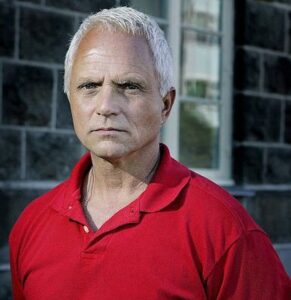 Chay Lemoine is a writer based in Edwardsville, IL whose work has been published in the Icelandic Connection, Deep South Magazine and in this magazine; and early this year his research work on Icelandic Writer Halldor Laxness was mentioned in The New Yorker Magazine.
Chay Lemoine is a writer based in Edwardsville, IL whose work has been published in the Icelandic Connection, Deep South Magazine and in this magazine; and early this year his research work on Icelandic Writer Halldor Laxness was mentioned in The New Yorker Magazine.


